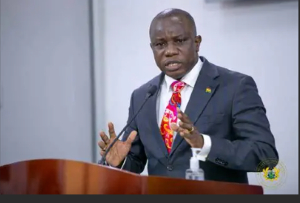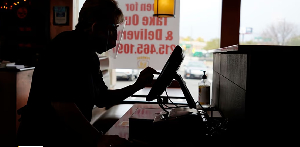The Akufo-Addo government will probe the $510million cost involved in the purchase of the Ameri power plants by the erstwhile John Mahama government, Majority Leader Osei Kyei Mensah-Bonsu has said.
“It is something that this nation must probe,” Mr Kyei-Mensah-Bonsu said during a debate of the president’s maiden State of the Nation address on Wednesday, 1 March, adding: “Mr Speaker, [the cost of] many of these installations (power plants) were padded.
“Very soon the country will rise up. ...I’ve said it in this house that the cost was padded, we shall investigate that.”
The Mahama government signed a deal with the AMERI group from Dubai to supply gas turbines which were to provide additional power to the national grid to ease the biting load shedding at the time.
Investigations by Norwegian newspaper VG exposed that the government of Ghana could have owned the 225-MW turbines at a cost of $220 million instead of the $510 million Build Operate Own and Transfer (BOOT) deal signed between Ghana and AMERI.
Apart from the AMERI deal, the government has also hinted at an impending review of all 43 Power Purchasing Agreements signed by the erstwhile Mahama administration and possibly cancels others, a move which power think tank Africa Centre for Energy Policy (ACEP) has said could save Ghana from shouldering a liability of $2.5billion annually through capacity charges on excess capacity alone.
During his maiden State of the Nation Address, President Nana Akufo-Addo said: “Government is conducting a review of all the power agreements entered into by the previous government in order to prioritise, renegotiate, defer or cancel outright, if necessary, in the national interest.”
In a statement issued by ACEP on the president’s comments about the energy sector, the energy think tank said the intended review of the PPAs would save Ghana a lot of money.
“It is true that power is expensive in Ghana. It is virtually impossible for Ghanaian businesses operating at the average tariff rate of 42 cents per kilowatt hour (kWh) to be competitive compared to the West African average rate of 15 cents/kWh,” the statement signed by Deputy Executive Secretary Benjamin Boakye said.
“ACEP is pleased that the government has already initiated a review of existing power agreements. This is particularly a bold decision that cannot wait any longer.
“We recognise that the combined effects of the energy sector debt and excess capacity resulting from the numerous power agreements signed could be hazardous in the near future. The World Bank estimates that Ghana could be faced with some $2.5 billion liability annually from capacity charges on excess capacity alone, if all the power generation contracts come into force.”
It added: “The probable cost of excess capacity charges could have been below the World Bank’s current estimate had the government heeded ACEP’s warning in 2015 when we estimated such cost at $360 million.
“It is, therefore, important to wean Ghana off this looming catastrophe. In view of this, we recommend that government should be transparent about the review process by involving all relevant stakeholders to engage on the reform and examine the options.”
Business News of Wednesday, 1 March 2017
Source: classfmonline.com













